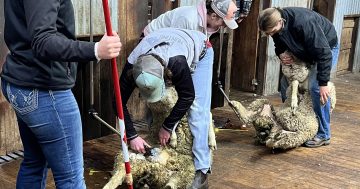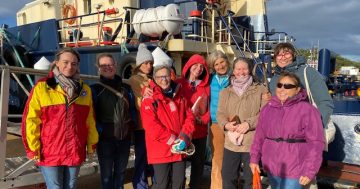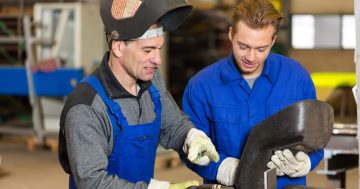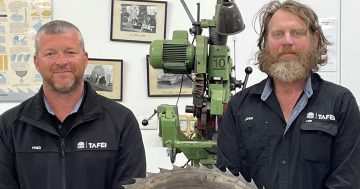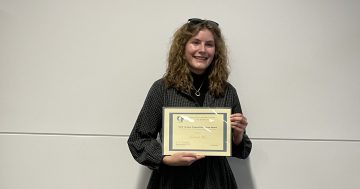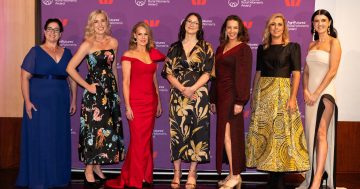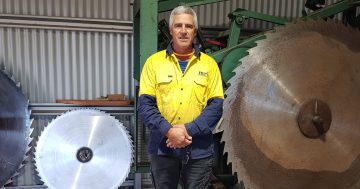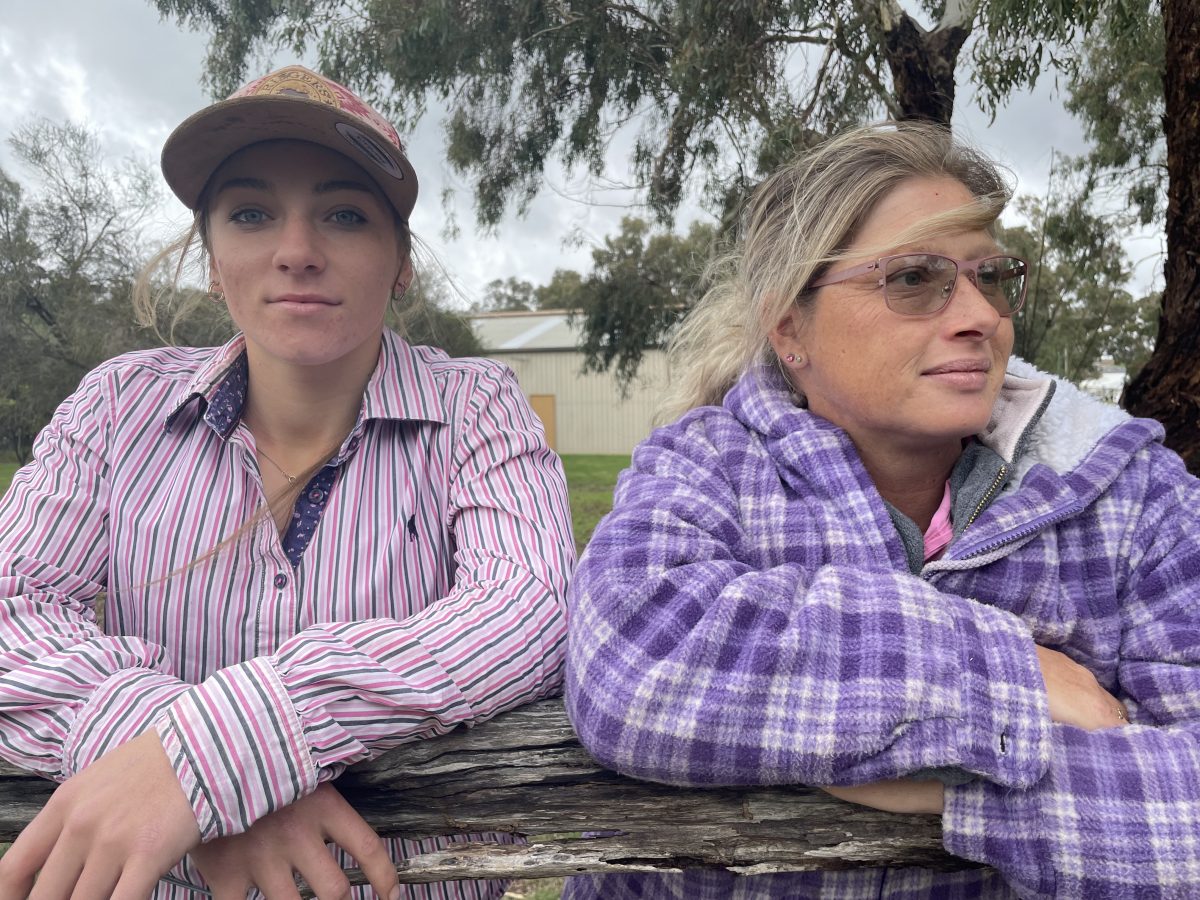
Taleah Pritchard (left) and Jackie Thompson (right) are looking forward to boosting their careers in agriculture thanks to the completion of their TAFE courses. Photo: Dan Johns.
Female students have claimed four out of the six prizes at the TAFE NSW Primary Industries Centre annual awards, reflecting the importance of women’s contributions to the region’s booming agriculture industry.
Among the winners was Taleah Prichard, who despite being from a non-farming background, left school early to pursue a career in agriculture. After completing two qualifications at the Wagga TAFE campus, she is now working in the industry.
Sixteen-year-old Taleah won Most Outstanding Student in both her courses, Cert II and Cert III in Agriculture.
“I always wanted to work with animals. I had all sorts of pets as a child – lizards, you name it,” Taleah said.
“I hated living in town. I didn’t fit in at school; I just wanted to be outdoors all the time.”
After completing her Cert IV in Wool Classing, Bungarby local Jackie Thompson was also awarded Most Outstanding Student.
Jackie lives and works on her family’s Merino stud near Cooma and credits her success to learning from her father-in-law.
“Women are taking the lead in wool classing,” she said.
“We have softer hands, better attention to detail, so we can pick the faults better.”
Jackie wants to use her skills to keep improving the family business and ensure “genetic lines” remain strong.
In their 2030 Roadmap, the National Farmers’ Federation (NFF) said TAFE NSW would play a critical role in the coming years in ensuring Australia’s agriculture industry had the workforce to meet future demand.
Agriculture supports more than 10,000 jobs in the Riverina region, but the industry is currently suffering an acute skills shortage.
The NFF aims to grow the workforce by 25 per cent and double the number of tertiary and vocational education graduates over the next decade.
Jackie encourages more women to contact their local TAFE and find out what courses will suit them.
“You’ll be able to talk to other women who are in similar jobs and that generates interest and grows the industry,” Jackie explained.
Taleah realised how important it was for women to stand up for themselves and their skills after having a negative experience undertaking a work trial on a Riverina farm.
“I’m glad I ended up finding my current boss. He’d never had any female workers before, but he is so respectful of me and my capabilities.”
Department of Agriculture, Water and Environment deputy secretary Rosemary Deininger spoke on a panel at the Digital AgriFood Summit in Wagga on Wednesday (1 June) and addressed the increasing demand for workers.
“I think changes to fee structures at university and TAFE will be essential to uplift the sector in coming years,” she said.
Ms Deininger added that watching and learning from other people’s successes in the industry will be the best way forward.
Despite being of different ages and backgrounds, the two students are certain that educating and employing more women will be the solution to future demand.
“Women can get out there and get their hands dirty,” Taleah said.
“Do what makes you feel good and if you can do a course in it and get paid for it, you’re all the better for it.”






